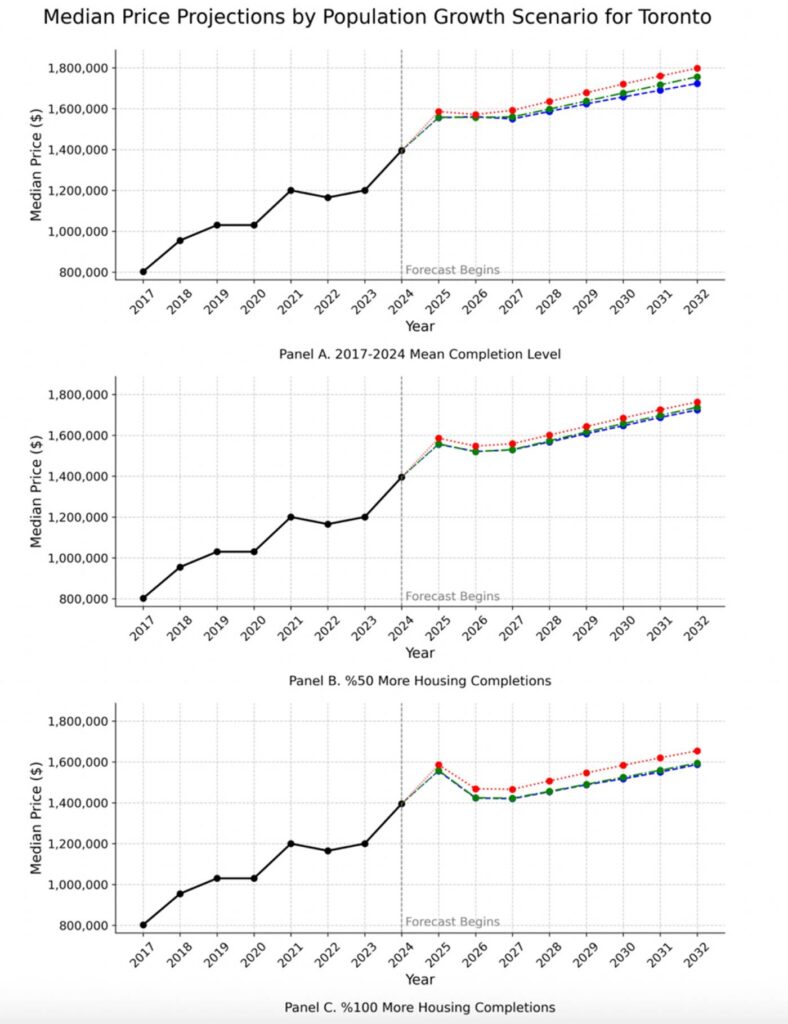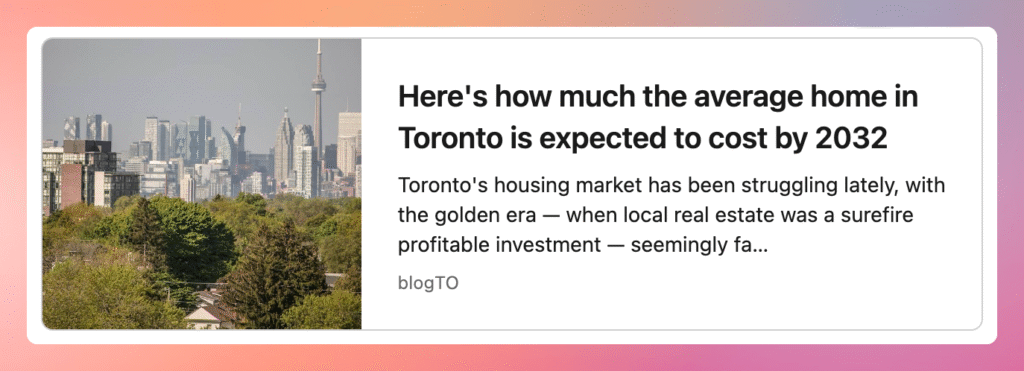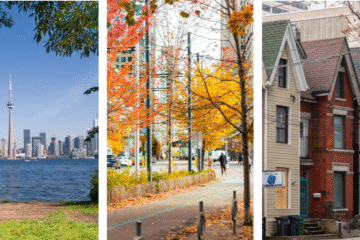
🏡 Toronto Home Prices: Headed To $1.8M by 2032?
Toronto’s real estate market has been going through a quieter phase, with sales slowing and prices cooling from the highs of recent years. For many, this has felt like a sharp contrast to the “golden era” of Toronto real estate, when homeownership seemed like a guaranteed wealth-building move.

But while the short-term headlines have been dominated by stalled sales and hesitant buyers, long-term projections still show Toronto home prices trending upward — a reminder that today’s slowdown may actually be tomorrow’s opportunity.

According to a study from Concordia University’s John Molson School of Business and private equity firm Equiton, Toronto’s median home price, now about $1.4 million, could climb to $1.8 million by 2032 if the pace of new housing completions continues at current levels.
That same research projects Vancouver’s median home price rising from $2.5 million to $2.8 million, and warns that only by doubling the pace of new construction could Toronto and Vancouver avoid runaway price growth.
Why Supply Matters — And Why Policy Shifts Are Critical
Led by Concordia professor Erkan Yönder, the study used a neural network-based AI model to analyze mountains of housing and policy data. The findings make one thing clear: Canada’s supply problem is at the heart of its affordability challenge.
- Current pace: Completions are at just 1.75% of existing dwellings per year in Canada’s biggest markets.
- Target pace: Doubling that rate would be “ambitious but necessary,” Yönder argues.
- Policy levers: The report quantifies that improving municipal approval timelines by 10% could add 3% more housing supply, while reducing regulatory burdens by 10% could add another 10% — all at no cost to governments.
- Risks: On the flip side, a 10% increase in building costs could cut completions by as much as 35%, particularly in apartment projects.
Not All Cities Will React the Same Way.
The research also highlights how different housing markets respond to supply and demand:
- Toronto & Vancouver: Doubling completions could stabilize prices, but only just.
- Montreal: Even major increases in supply won’t stop upward pressure, as affordability gaps with other cities leave “more room” for growth.
- Calgary: Prices are more tied to immigration swings than supply, with a recent $740,000 peak expected to cool and remain below that level.

The bottom line: Toronto is in a better position than some, but long-term fundamentals still point to steady appreciation.
Here’s where the optimism comes in. Despite long-term forecasts for higher prices, today’s market is giving buyers something rare: opportunity.
- More inventory: Listings are higher, creating more choice.
- Less competition: Fewer bidding wars mean conditions and negotiations are back on the table.
- Favourable timing: If Toronto’s median home really does climb to $1.8 million by 2032, today’s buyers will have locked in at a relative discount.
Toronto real estate has always proven resilient — and while affordability challenges remain real, those with the ability to act now may find themselves ahead of the curve when the market inevitably heats back up.
Bottom line: Toronto’s market might feel cooler today, but the long game still points up. If you’re planning a move in the next 6–24 months, this is the window to compare neighbourhoods, negotiate on terms, and lock in a plan before momentum returns. Ready to map out your strategy? Reach out to Skill Realty and call Subodh Sharma at 416-675-6300 to build your step-by-step path from “watching the market” to owning in it. 🏡📈











